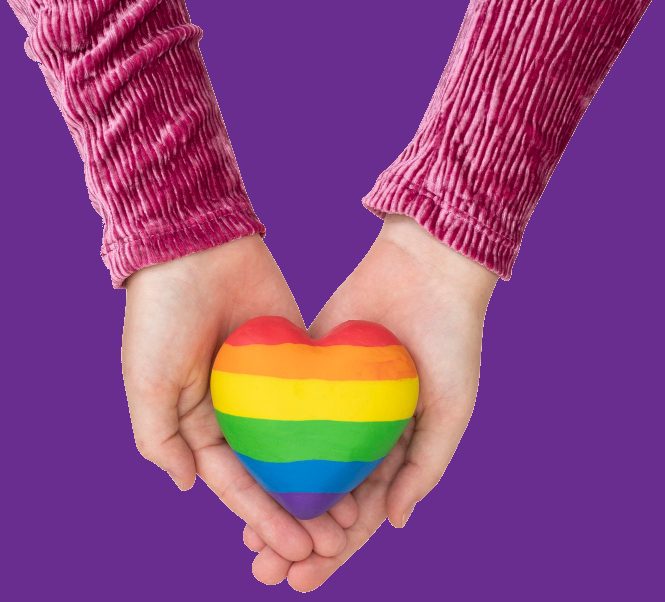
How does TPN work with teens?
Our crisis and support hotline is available 24/7 with someone there to listen, guide and support you.
Anyone can call anonymously and talk to someone if they need to.

If you call 1-800-639-3130 while the office is open, a member of TPN staff will answer from our office. If you call at any other time, an answering service will ask for your first name and phone number. A volunteer will then call you back within five minutes.

You are not required to give your name or age, but you certainly may. Keep in mind, TPN staff members are mandated reporters of abuse that happens to a minor.

You can call to talk about a situation you are dealing with, or something happening to a friend. You can also ask about “What If” scenarios without attaching any names if you don’t want to. For example, someone could call and ask, “What if a 14 year old was dating someone treating them badly and they wanted to leave, they’re afraid of seeing their ex at school?”

1 in 3 U.S. Teens are Victims of Physical, Sexual, Emotional, or Verbal Abuse from a Dating Partner
Any young person can experience dating abuse regardless of gender, sexual orientation, ethnicity, religion, or culture.
Dating abuse is a pattern of destructive behaviors used to exert power and control over a dating partner. Anyone can call TPN anonymously and talk to someone if they need to.
Read about some of the issues TPN can help with:
Bullying
While most reported bullying happens in school, bullying can also happen in places like the bus or outside of school. It can also happen online, which is referred to as cyberbullying. For more about cyberbullying visit Stop Bullying.
Bullying is unwanted, aggressive behavior that often involves a power imbalance. This can happen in many different ways, including the following:
- Verbal or Emotional
- Taunting Teasing Threats
- Physical
- Hitting Kicking Taking or breaking someone else’s belongings
- Social
- Leaving someone out on purpose
- Spreading rumors
- Telling others not to be someone’s friend
Sexual Assault
Sexual assault can happen to anyone: people of all ages, genders, backgrounds, abilities, and orientations. While all states vary in their specific definitions, sexual assault is a term commonly used to mean non-consensual sexual contact or intercourse. This can include but is not limited to sex, other sexual acts, touching genitals or breasts, fondling, or forcing the victim to either watch sexual acts or perform them on themselves.
Sexual assault also includes sexual acts where consent was given due to violence or threats, when the victim could not give consent (such as if they are intoxicated or under the influence of drugs), or when consent was given under specific conditions that the other person did not follow (such as taking off a condom when their partner isn’t looking).
Sexual assault can also occur when one person is coercing or manipulating the other person. Sexual coercion and manipulation use pressure, alcohol or drugs, or force to have sexual contact with someone who has already refused. Manipulation can involve asking repeatedly after being told “no”, withholding things from the partner, or emotionally distancing themselves until their partner says “yes”.
For more information about how every state defines sexual assault, visit RAINN (Rape, Abuse, & Incest National Network).
So, what is all this talk about consent? Well, it’s EVERYTHING! In a healthy relationship, it is important for partners to discuss personal boundaries and what each person is comfortable with.
When it comes to sex or other sexual activity, it’s important to ask for consent, or the “go ahead,” every time. Whether it’s the first time or the twentieth time, it’s always necessary to get consent. It’s never okay to assume consent. There is no room for coercion, manipulation, or force in healthy relationships or hookups.
There are other parts of consent to think about when discussing your boundaries with your partner.
- In New Hampshire, the legal age of consent for sex is 16 years old.
- Consent is not just about spoken words – body language can speak for itself. If one partner says “yes”, but their body is tense or they are flinching, or any other visible signs that they are afraid, uncomfortable, or uninterested, stop and talk about it.
- Anyone is allowed to change their mind at any point. A person can stop an activity at any time, even if they previously agreed to it.
- Just because someone consented to an activity before, doesn’t mean they have automatically given consent for those activities, or others, in the future.
- It is not okay to lie about sexual activities to a partner. If someone lies or withholds information, they do not have consent from their partner.
- A person under the influence of drugs and/or alcohol cannot give consent. Drugs and alcohol change how the brain works, and part of that is lowering a person’s ability to make decisions and judgement calls. A person under the influence might make a choice they would not make while sober, or go along with something they don’t really want. It’s better to be safe and wait for all parties involved to be sober.
Everyone in the relationship should feel safe and be able to make their own boundaries!
Unhealthy or Abusive Relationships
Did you know that 1 in 3 teens in the United States are affected by dating violence? Teen dating violence is defined as stalking, and psychological, emotional abuse, physical, and sexual abuse within a dating relationship. This can occur in person or electronically and can take place in current relationships or with former dating partners.
Warning signs or red flags of an abusive partner or relationship may include, but are definitely not limited to:
Power and Control Wheel from LoveIsRespect
For more information, check out this Power and Control Wheel from LoveIsRespect for more detailed descriptions.
Did you connect with any of the red flags mentioned above? TPN is here to help. A partner who loves and cares for you should never act out in dangerous, controlling, or violent ways.
Childhood Sexual Abuse (CSA)
For this section, we will use the word “child” to refer to a minor, which is anyone under the age of 18.
Statistics show us that 1 in 10 children will experience sexual abuse by the time they reach their 18th birthday, and the majority know the person that abused them.
Childhood sexual abuse can include, but is not limited to:
- Sex of any kind
- Touching in a sexual way, such as genitals or breasts
- Sexual text messages, online interactions, or phone calls
- Exposing a child to sexual images or videos
- Masturbation in front of a child
- Exposing genitals to a child
- Producing, owning, or sharing sexual images or videos of children
- Telling a child not to tell their parent(s) or other trusted adults about what is happening, and keep it a secret
- Telling a child that the abuse is normal, or special
- Other sexual acts
When an adult engages with a child in these ways, they are committing a crime. It can take months or years for them to realize what happened to them, or be able to tell anyone. Abuse is never okay, and it is never the survivor’s fault.
Effects of Abuse and Sexual Assault
Abuse and sexual assault can impact the victim mentally, physically, and emotionally. Every survivor is different, so the impact will vary from person to person. Below are just some of the effects a survivor may experience.
Emotional Impact
- Doubt or disbelief
- Feeling numb, difficulty processing emotions
- Guilt and self-blame
- Anxiety
- Feeling powerless, like you have no control
- Embarrassed
- Fear and paranoia, feeling like you can’t trust other people
- Conflicted feelings about the person who abused/assaulted you
- Not sure who you can talk to or where to go for help
Physical Effects
- Stomach aches
- Nausea
- Headaches
- Other body pains that have no other explanation
- Feeling tired more than usual
- Injuries
- Sexually transmitted diseases
- Pregnancy
- Substance use
Mental Effects
- Lower grades in school
- Not talking to friends, or not feeling able to
- Losing interest in things that make you happy
- Nightmares
- Having trouble concentrating
- Having trouble remembering things
- Panic attacks
- Thoughts of suicide
- Self-harm (cutting, burning, forcing yourself to look at things you know will upset you, etc.)
- Higher and/or lower sexual arousal, desire or ability to perform sexual acts
Some people may feel many of the effects on this list, while others may find they have experienced a few or none at all. Everyone has the right to feel the way they do about what happened to them and feel validated in their experiences.
Sexting
Sexting is the act of sending or forwarding nude, explicit, or sexually suggestive pictures/messages on your phone or online.
“Isn’t that just sending nudes?” you might be asking. This probably doesn’t seem like a big deal, but it can actually be illegal. Having sexual or suggestive images of anyone under 18 years old is considered child sexual abuse images, even if both the sender and receiver are minors.
It is also important to consider what might happen to the picture after it’s sent. The sender might trust the person on the other end, but they don’t know who might look over their shoulder. Even on apps like Snapchat, the recipient can take a screenshot of the picture, and while Snapchat will send an alert that they did this, the sender no longer has control over who sees it.
New Hampshire also has sections of the law against what is often referred to as “revenge porn”, or nonconsensual dissemination of private sexual images. This means that it is illegal to distribute or show sexual images without the consent of the person in them. This protects the person in the images from harassment, coercion, or threats related to the images.
Talking About Abuse and Sexual Assault
Many people are nervous to talk about what happened to them. What if no one believes them? What if the adult they would go to is the one hurting them? What if it really isn’t that big of a deal and people accuse them of starting drama? It can be scary, especially if you don’t know what will happen once you report.
Every adult in New Hampshire is a mandated reporter. This means that if someone under the age of 18 tells them about abuse or assault, they have to report it. This can be scary if you aren’t ready to confront what happened, especially if it just happened, or you aren’t sure what you want to happen going forward.
It can be hard to start a conversation with your loved ones about abuse and sexual assault. As you think about who you might talk to, consider the five basic questions: Who, What, When, Where, and Why.
Who?
- Who do you want to tell?
- Do you want them to share with friends or family?
- Is there anyone you do not want to know about it?
What?
- What are you telling them?
- How much detail are you comfortable giving them?
- If they ask for more details, what is your limit?
When?
- When do you want to tell them?
- Do you want to set up a specific time to talk to them about it, or would you prefer having a plan to bring it up at the first opportunity?
Where?
- Where do you feel comfortable talking about this?
- Would you feel safer in a public space, or in private?
- Are you comfortable telling them in person, or writing it down for them to read when you are not there?
More Tips for Talking About These Issues with Your Loved Ones
- You are not obligated to tell everyone all at once.
- If you are not sure how the other person will react, you could try to gauge their reactions with test questions about current events. Bring up a well-known, recent domestic violence or sexual assault case to see how they react.
- Make a plan. It doesn’t have to be detailed, and if something comes up, you don’t have to stick to it 100%. Talking about these issues can be difficult, so thinking about your five questions ahead of time can help you stay on track and say everything you need to.
- The person you talk to may need some time to process what you’ve told them – it doesn’t mean they are rejecting you, or that they don’t believe you.
Just remember that you deserve not to be hurt. It’s important to take care of yourself and do what you need to do to feel happy and safe. If you want advice on reporting and how to tell someone about what happened, you can call TPN’s 24-hour anonymous hotline. Even if other people in your life aren’t being supportive, TPN can make sure you always have someone in your corner.
What You Can Do to Help a Friend
Sometimes it’s hard to know what to say or do if a friend, or someone else you care about, has been hurt. Understand that your friend is probably dealing with a number of emotions, and like you, may not know how to talk about it either.
If a friend tells you they’ve experienced dating abuse or have been sexually assaulted, the first thing to do is believe them.
Reassure them that they are not to blame.
Don’t ask questions or pressure them to give information that they don’t offer, be patient and kind, and support them every step of the way, even if they choose not to report.
Here are some tips for what to say and what not to say when your friend tells you they have been abused or sexually assaulted:
Things to Say
- I believe you and am sorry this happened.
- Nothing you did (or didn’t do) makes you deserve this.
- I’m glad you told me.
- Do you want or need medical attention?
- Do you want me to go with you to talk to someone about this?
- You are not alone.
Things NOT to Say
- Just try to forget it happened.
- It’s not that big of a deal. You’re overreacting.
- This wouldn’t have happened if you hadn’t […]
- Don’t tell anyone else this happened.
- They wouldn’t do something like that.
It’s also possible your friend will make you promise not to tell anyone. It’s hard, because you don’t want your friend to be hurt, but you don’t want to break their trust in you either. It’s good that someone trusts you to tell you something like this, but it can also be hard to hold onto that knowledge without being able to ask for help. Here are some tips on what you can do in that situation:
- You can let them know you won’t break their trust in you unless you’re seriously worried about their safety or someone else’s.
- Help them think of adults they trust to talk to and get help.
- Offer to go with them to tell that adult – sometimes it’s less scary if they know a friend has their back, either to just be quietly supportive or help them fill in details when they’re recounting what happened.
- You can talk to an adult you trust and throw out “What If” scenarios without giving any names or details that would give away who you’re talking about. Sometimes it helps just to have that outside perspective.





